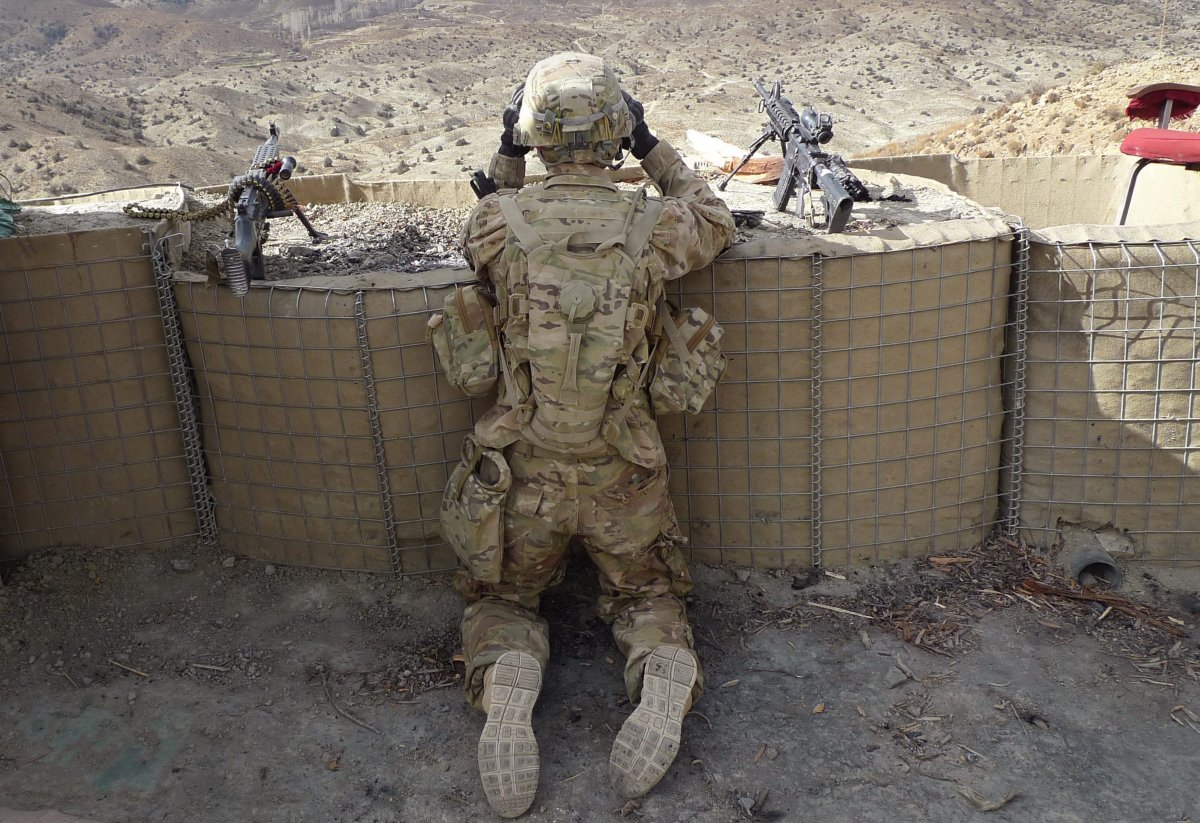Surgeons from Johns Hopkins School of Medicine said the recipient of the United States’ first penis transplant will be a young soldier injured in a bomb blast in Afghanistan.

The organ will come from a deceased donor, doctors said they expect it to start working within a matter of months. First he will develop urinary function, sensation and, eventually, the ability to have sex, according to the New York Times. The surgery will take place within a year.
“We want to continue to expand the field into areas that are not easy to reconstruct using conventional methods,” Dr. Damon Cooney, the co-clinical director of the penile transplant program at Johns Hopkins, told CBS News. “The more and more interactions we’ve had with the military, the more we came to find out that although people aren’t talking about it much, genital injuries are a much bigger problem for a lot of people.”
This is not the first transplant in the world. There have been two others; the first in 2006 failed, the second transplant was performed a year ago in South Africa. In June the recipient announced his girlfriend was pregnant.
“From our experience in hand transplantation, significant nerve regeneration and functional recovery can occur after transplant. Therefore, we think it is entirely feasible for a penile transplant recipient to regain sexual function, ” Dr. Andrew Lee, chairman of plastic and reconstructive surgery at Johns Hopkins expressed to Global News in an email.
READ MORE: Canadian teen undergoes first of its kind triple-organ transplant
- ‘She gets to be 10’: Ontario child’s heart donated to girl the same age
- Bird flu risk to humans an ‘enormous concern,’ WHO says. Here’s what to know
- Shoppers faces proposed class action over claims company is ‘abusive’ to pharmacists
- Most Canadian youth visit dentists, but lack of insurance a barrier
According to the South African physician who performed the surgery, André van der Merwe, head of Urology at Stellenbosch University and Tygerberg Hospital in Cape Town, the patient made a full recovery and has regained all function in the newly transplanted organ.
“Our goal was that he would be fully functional at two years and we are very surprised by his rapid recovery,” said Van der Merwe. “The end result of the transplant was the restoration of all the patient’s urinary and reproductive functions.

“It’s a massive breakthrough. We’ve proved that it can be done – we can give someone an organ that is just as good as the one that he had,” said Frank Graewe, head of the Division of Plastic Reconstructive Surgery.
The surgical team from Johns Hopkins hopes to help up to 60 military service members who need transplants. The surgery is still considered experimental so the medical team at the university will monitor the results.
Recent research regarding young, male military personnel in the U.S., showed approximately seven per cent of them under the age of 40 years old sustained genital injuries during military service. Data from the Joint Theater Trauma Registry (JTTR) indicated that approximately five percent of the overall 16,323 trauma admissions between 2001-2008 involved genitourinary (GU) injuries.
“Although we could not predict the number, we hope to evaluate many wounded warriors with significant pelvic injuries to determine if transplant is a good option for their treatment.”
“According to the Department of Defense Trauma Registry there have been 1,367 men in military service who suffered combat wounds to the genitals in Iraq or Afghanistan between 2001 to 2013,” said Dr. Richard Redett is associate professor of plastic and reconstructive surgery and pediatrics at the Johns Hopkins in an email response to Global News. “Not all of these men have severe injuries or require transplants.”
According to Center for Innovation and Research on Veterans & Military Families at the University of Southern California School of Social Work, explosions are a primary source of injury in the recent conflicts. The use of dismounted combat operations have led to more exposure to IED explosions, which has been a leading cause of GU injuries. For U.S. operations in Afghanistan, the use of dismounted patrols resulted in 350 per cent more GU trauma, compared to U.S. operations in Iraq. Other JTTR research found that over 50 per cent of GU injuries during a one year period in Iraq were due to explosions. Gunshot wound to the penis was also a leading cause of GU injury.
“Although we could not predict the number, we hope to evaluate many wounded warriors with significant pelvic injuries to determine if transplant is a good option for their treatment, ” said Lee.




Comments